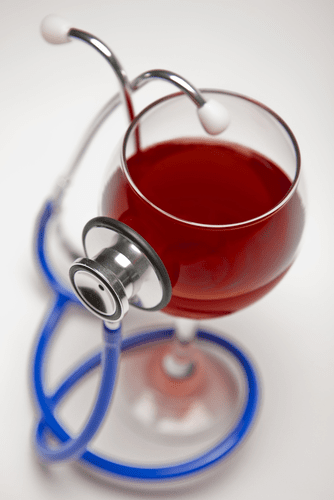Content
In a way, it encourages them to repeat these types of behaviors and avoid those that create negative responses. 90-day treatment programs are residential or inpatient care programs that provide a long-term approach to recovery. These types of programs typically involve detoxification, individual and group therapy, life skills development courses, medication management, and aftercare planning. The brain regulates temperature, emotions, decision-making, breathing, and coordination. This major organ in the body also impacts physical sensations in the body, emotions, cravings, compulsions, and habits.
It also affects emotional responses to help people distinguish between positive emotions, like joy, and negative ones, like sadness. Treatment at each of the Hazelden Betty Ford Foundation sites is constantly guided and improved by scientific innovation. As a result, our treatment plans incorporate pharmacological treatments with traditional counseling sessions for patients with high-risk dependence behaviors.
How to Improve Your Memory
Remember, it’s common for people to develop a tolerance to pain medication and to need higher doses to get the same level of pain relief. With addiction, you may need to use higher doses, but it’s not for pain relief. But if you’ve misused drugs or alcohol in the past or have family members who have, you may be at a higher risk. Drug misuseis when you use legal or illegal substances in ways you shouldn’t. You might take more than the regular dose of pills or use someone else’s prescription.

Once a person is addicted to drugs, it is difficult to stop without help from an addiction treatment center. The effect of drugs on the human brain can remain for years after getting help and no longer using drugs. This is one reason why people in recovery continue to go to group counseling and support meetings. Long-term drug use is developed from the stimulation of the brain’s reward center.
Why are drugs more addictive than natural rewards?
Consistent drug use leads to tolerance, enjoyment, and mind-altering effects. The more someone changes normal brain function, the more likely dependence will occur. Excessive alcohol and drug use sends your nervous system into disarray, rewires your brain, and causes inflammation — all of which can cause mental illness. Read on to find out more about the emotional effects of substance use disorders. There is a widespread misperception that drug users have poor character because they chose to repeatedly take drugs despite knowing what the consequences could be. And while it is true that when someone opts to use drugs for the first time, they are doing so voluntarily, no one starts using with the intention of becoming addicted.

Learning how to function without the presence of drugs is a challenge for any brain, especially if it has been subjected to large amounts of substance abuse. Brain imaging studies from people with substance use disorders show changes in areas of the brain that are critical to judgment, Top 5 Questions to Ask Yourself When Choosing Sober House decision making, learning and memory, and behavior control. Scientists believe that these changes alter the way the brain works and may help explain the compulsive and destructive behaviors of addiction. The drugs that may be addictive target your brain’s reward system.
Neurobiologic Advances from the Brain Disease Model of Addiction. New England Journal of Medicine, January 28, 2016.
As you become more intoxicated, someone asks if you want to try some cocaine, and you agree. However, a short time later, there is a significant release of dopamine, resulting in a euphoric feeling. For instance, smoking marijuana can cause an increase in the release of dopamine, which can make one feel relaxed and at ease. Since it creates pleasure, the brain remembers this response, which results in the need to smoke marijuana again. The brain remembers what types of activities bring pleasure and make individuals feel happy.
- These concepts are easier to understand if we use example more familiar to most people.
- Drug users might even start to notice they are having problems with their short-term memories.
- Just as cardiovascular disease damages the heart and changes its functioning, addiction changes the brain and impairs the way it works.
- I’ve come to accept that my clothing size is now size Large, whereas before it was size Medium.
There is evidence that the brain does recover; the image below shows the healthy brain on the left, and the brain of a patient who misused methamphetamine in the center and the right. These brain scans highlight dopamine receptors, with areas of highest density shown in red. Other drugs, including alcohol, cocaine, and heroin, have the same effect.
Understanding Addiction
According to the current theory about addiction, dopamine interacts with another neurotransmitter, glutamate, to take over the brain’s system of reward-related learning. This system has an important role in sustaining life because it links activities needed for human survival (such as eating and sex) with pleasure and reward. Scientists once believed that the experience of pleasure alone was enough to prompt people to continue seeking an addictive substance or activity. But more recent research suggests that the situation is more complicated. Dopamine not only contributes to the experience of pleasure, but also plays a role in learning and memory—two key elements in the transition from liking something to becoming addicted to it.
By maintaining lower dopamine levels in the brain, dopamine receptors can start returning to higher, normal levels. Increasing the number of dopamine receptors to normal levels reduces impulsivity and anhedonia symptoms. The first time a person takes a drug, it can cause a host of different types of short-term effects. When the drug is introduced into the body, it interferes with normal brain functions.
Addiction Treatment
Some doctors’ offices are equipped to handle overdoses; others are not. Some doctors’ offices advise their patients to go to a hospital’s emergency department. In life-threatening circumstances, an ambulance should usually be summoned by calling 911. Your doctor, your local poison center, or the emergency department of your local hospital may be able to help determine the seriousness of a suspected drug overdose.

